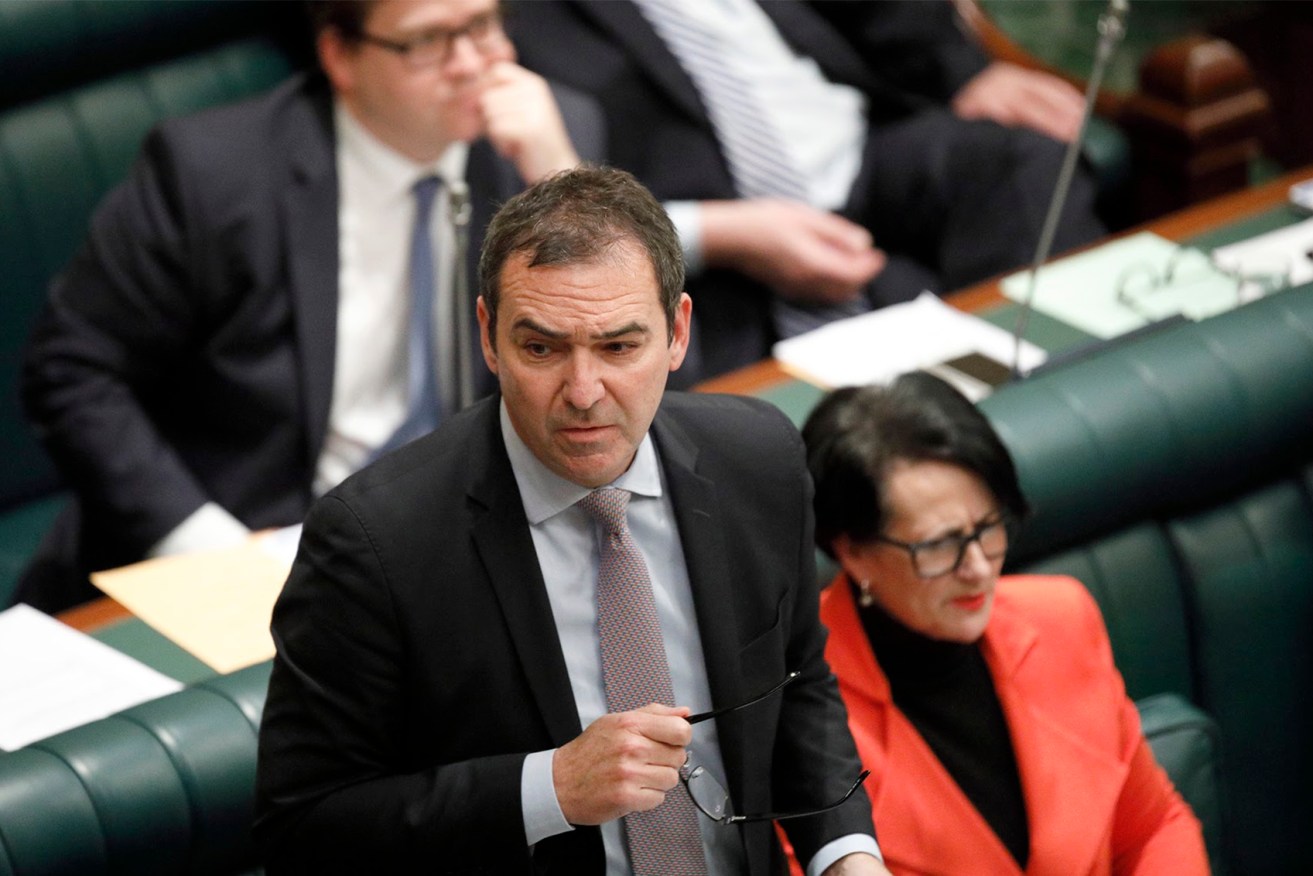Marshall’s “war on drugs” will harm children, not help them: experts
The Liberal Party’s new policy to send sniffer dogs into schools and increase fines for cannabis possession will likely push vulnerable children into more harmful drug use, public health and criminology experts have warned.


Opposition Leader Steven Marshall unveiled the Liberal Party's drugs policy over the weekend. Photo: Tony Lewis / InDaily
Over the weekend, Opposition Leader Steven Marshall released the Liberal Party’s “winning the war on drugs” policy, which involves directing SA Police to conduct random drug inspections of state schools, reviewing maximum sentences for drug offences including quadrupling penalties for cannabis possession, and funding drug treatment and education programs.
But experts say the tougher law enforcement-based approach would be both ineffective and counter-productive.
Associate professor of the University of Adelaide’s School of Medicine, addiction specialist Dr Rob Ali, told InDaily sending sniffer dogs into schools was likely to have the perverse effect of normalising drug use and encouraging children to use more dangerous substances.
“It hasn’t got a strong evidence base to support (it),” said Ali.
“It’s likely to increase problems rather than decrease them (and) it’s extraordinarily expensive for little or no yield.”
He said the policy was likely to encourage children to seek out more harmful synthetic psycho-stimulants, which are more difficult for dogs to recognise than more common drugs like cannabis.
“Dogs have got a limited repertoire,” he said, adding that policy-makers should be more focused on decreasing harms from legal drugs, such as alcohol and tobacco, and on catching gang networks that import drugs into Australia.
“It’s the licit drugs that create the biggest harm for youth,” said Ali.
Policy-makers should be doing “anything we can do to deter … the take-up of tobacco (and alcohol)”.
Professor of Law at the University of South Australia, and immediate past-president of the Australia and New Zealand Society of Criminologists, Rick Sarre, told InDaily the “war on drugs” – involving law enforcement responses to drug use – had never been effective.
“Every last instance of the literature I receive … says that the so-called war on drugs has never worked,” he said.
“If you criminalise (young drug users) … all you do is label them.
“It becomes a self-fulfilling prophecy.”
The phrase “war on drugs” was popularised by US President Richard Nixon, who labelled drug abuse “public enemy number one” in the early 1970s.
Sarre, a former Labor candidate in the federal seat of Sturt, said any policy to “drag (children) away for the amusement of their colleagues” would send the “wrong message” to vulnerable teens.
“I’m sure Steven Marshall’s (…policy aims) are sincere, but there are better ways of doing it,” he said.
“Kids have cannabis at school for reasons to do with … being in the wrong peer group (and) getting the wrong messages from family.
“(Tough law enforcement policies) drive those who are somewhat aloof from society … to become more aloof from society.”
However, Deputy Liberal Leader Vickie Chapman said the policy would drive drug dealers out of the school system.
“I warn anyone thinking of taking drugs to a school that they are at real risk of being caught,” Chapman told InDaily.
“Drug use in South Australia increased last year and kids are a risk of being exposed drugs younger and younger.
“We need to take stronger action to protect our kids from the pernicious effects of drug use.”
The policy, which would also prevent members of outlaw motorcycle gangs from visiting prisoners, will make up part of the Liberal Party’s platform for the next state election.
On Saturday, Marshall sent a newsletter to supporters, declaring: “Today my message to the drug peddlers, those that are seeking to exploit our kids and subject them to a life of addiction is simple, if I become Premier in March next year, your days are numbered.”
“The misery that you inflict on our children will be over.”
Today, he sought to allay concern about the schools aspect of the policy, including clarifying that he did not want sniffer dogs going into classrooms while students were present.
“There’s been a lot of reaction over the weekend; people are concerned about this, but there’s nothing to be concerned about, unless you’re somebody that’s trying to bring drugs into a school,” he told ABC Radio Adelaide.
“They’re the people that we’re targeting in this issue, we’re not going to be having … sniffer dogs going into classrooms when students are present. But what we want to do is just establish a protocol between SAPOL and DECD to allow an easier opportunity for principals to ask the Police to spend more time in the schools and have the option of the sniffer dogs come to the school.
“And the reverse as well where police suspect that there are illicit drugs in a school that they’ve got an easier access to that school, and we want to send a very clear message that there can be random drug detection opportunities at schools, so that we create a deterrent for the people that are doing the wrong thing.”
Police Minister Peter Malinauskas has labelled the sniffer dog policy “absurd”, arguing that neither SA Police nor school principals have asked for it.




